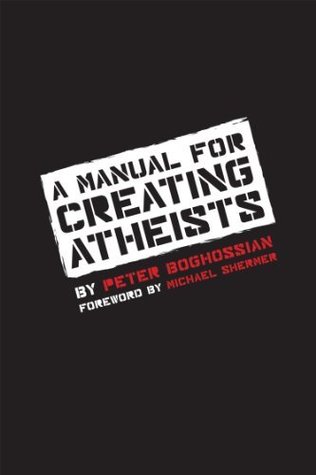More on this book
Community
Kindle Notes & Highlights
If one had sufficient evidence to warrant belief in a particular claim, then one wouldn’t believe the claim on the basis of faith. “Faith” is the word one uses when one does not have enough evidence to justify holding a belief, but when one just goes ahead and believes anyway.
Not everything that’s a case of pretending to know things you don’t know is a case of faith, but cases of faith are instances of pretending to know something you don’t know.
“Atheist,” as I use the term, means, “There’s insufficient evidence to warrant belief in a divine, supernatural creator of the universe. However, if I were shown sufficient evidence to warrant belief in such an entity, then I would believe.”
A difference between an atheist and a person of faith is that an atheist is willing to revise their belief (if provided sufficient evidence); the faithful permit no such revision.
Agnostics profess to not know whether or not there’s an undetectable, metaphysical entity that created the universe. Agnostics think there’s not enough evidence to warrant belief in God, but because it’s logically possible they remain unsure of God’s existence. Again, an agnostic is willing to revise her belief if provided sufficient evidence.
The problem with agnosticism is that in the last 2,400 years of intellectual history, not a single argument for the existence of God has withstood scrutiny. Not one.
“Your religious beliefs typically depend on the community in which you were raised or live. The spiritual experiences of people in ancient Greece, medieval Japan or 21st-century Saudi Arabia do not lead to belief in Christianity. It seems, therefore, that religious belief very likely tracks not truth but social conditioning.”
Many people try to make atheism into something it’s not. Atheism is not about racism, homophobia, or not practicing tai chi; it’s simply about not having enough evidence to warrant a belief in God. Atheism is about epistemology, evidence, honesty, sincerity, reason, and inquiry.
Faith taints or at worst removes our curiosity about the world, what we should value, and what type of life we should lead. Faith replaces wonder with epistemological arrogance disguised as false humility. Faith immutably alters the starting conditions for inquiry by uprooting a hunger to know and sowing a warrantless confidence.


